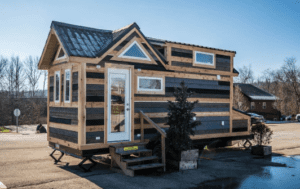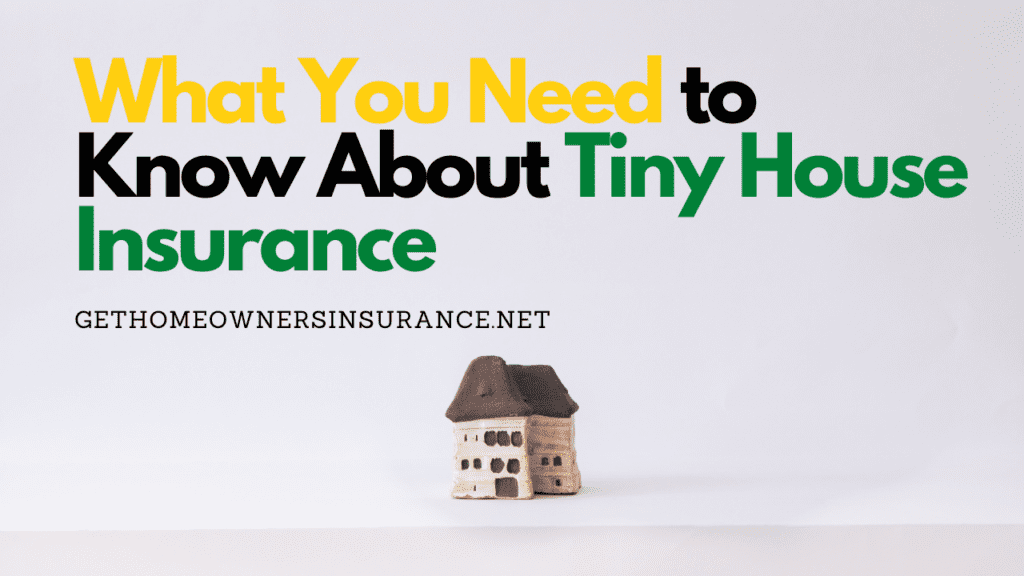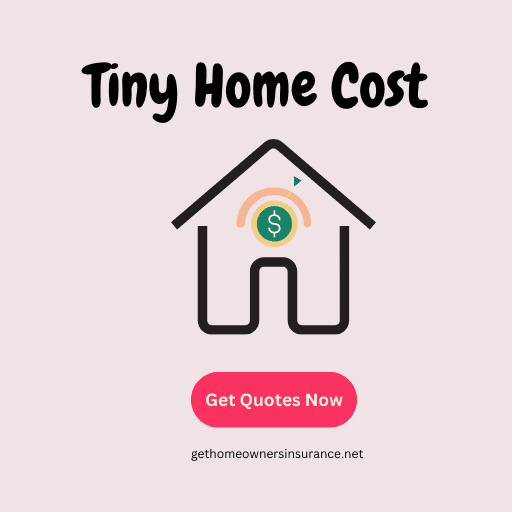What You Need to Know About Tiny House Insurance?
Want to simplify your life? Want to lower your monthly expenses? Want to reduce your dependency on your job? Little homes may be the answer for you and your family.
Tiny House Insurance
Below is my record of the many benefits of having a compact-sized house. Here we go…
Less Initial Cost
A tiny house obviously smaller sized compared to a standard house. There are fewer components and the work required to build it because of its dimension.
Since tiny homes often have most of the features a standard house has (kitchen, plumbing, ceiling, flooring) the price per sq. ft. is usually more expensive. But since the overall dimension of the house so smaller sized, the overall price is only a fraction of conventional homes.
Less Power Consumption
Tiny homes require much less power to heat and cool for they reason that has much less interior air space. Since many tiny homes are on tires. A compact-sized property owner could move their house under a large tree in the summer, and out into the sun during the winter.
Two additional culprits for significant power intake are refrigerators and hot standard water heaters. Another use of power is your own power. It doesn’t take long to tidy up a really small residence.
I have seen folks who have been very creative with reducing their tiny house’s power intake and making use of the fact that their house really small. Residential solar panels, wood stoves, wind generators, compost toilets, the record goes on and on.
Less Normal Drinking Habits And Trash
If you have a little shower and a small hot standard water heater, it’s likely that your showers will be a lot shorter. If you have a little junk can, it’s likely that you will generate less junk. Using less standard water and producing less junk is both good for the atmosphere and your wallet.
Less Price For Repairs
Repair expenses for your tiny house are merely a matter of mathematics. The price to replace the top of a 2,000 sq. ft. house will be a lot less than the price of a 300 sq. ft. house. This is of course because of the reduction in components and work.
Less Area To Buy And Upkeep
A small residence will require less area to live on. But land in a suburb is cheaper to buy and the required taxation is less. If you choose to buy a really small parcel that your house will live on, you’ll spend a shorter period reducing grass. If you buy a regular-sized lot, you’ll have more room in your garden.
Less Food
If you have a little pantry, you’ll have a bit of a meal in your house. If you can look through the kitchen area window and see vegetables growing in it, you’ll spend less on produce. By eating fewer meals in your tiny house, you’ll keep your meals invoice and weight down.
Fewer Taxes
Since the value of your tiny house and the area it resides on is less useful (assuming you choose to buy your area rather than lease) your tax invoice will be less. The savings can go towards investments, retirement, college for your children, holidays, or donations to insurance and quotes.info :-).
Less Insurance
Tiny house insurance for your home can add upright, especially when it’s the perfect chance to use it. Little homes price much less to insure because they are less useful.
Many tiny house insurance policy providers consider tiny homes on tires to be RV. Since insurance policy providers aren’t nonprofits and are in business to make money, you will often have difficulty getting the cash from them.
Less Attention Paid
When I bought my first house, initially I was paying more attention than the principal. It’s no secret that over the course of a 30-year loan, you will pay more attention than you will to the house itself. Most tiny homeowners choose to pay cash for their tiny house or to pay it off easily.
The quantity you save by avoiding attention will ultimately be a great quantity. More than enough to buy the in-laws a compact-sized house and have it located on the back (way back) of your property.
More Disposable Income
All of the above reasons I’ve listed for buying a compact-sized house have been focused on “less”. So less intake, and less cash out of pocket. But all of this leads to having more cash in the bank at your disposal.
If you write a listing of your recurring expenses, you’ll easily realize that expenses associated with your house represent the majority of your expenses. By having and residing in a house, you are slashing your residing expenses at every level.
More Freedom
Ok, 11 reasons. I saved the best for last. When you own and live in a little house. You release your two most precious sources, cash, not to mention some of Planet’s most precious sources…water and power.
- Does your current quality of life keep you from working at the job you want?
- Does it keep you from going on holidays and investing some days off when you like?
- Do you have to sacrifice hanging out doing exactly what you want in order to pay your bills?
Are you worried about the World and atmosphere and leaving it in top shape for those that follow us? By residing in a house, you release cash by reducing expenses in a big way. You use fewer natural sources. And you release time by saving money for its cleaning and maintaining your house. You trade sq ft for independence.
Are you looking for a tiny house insurance way to downsize, and live independently?
Help The Environment And Save Money At The Same Time?
Tiny houses tick all of these boxes – that’s probably why they’ve become so popular. Before you start selling your furniture or go offline, however, you should familiarize yourself with the ins and outs of insuring a tiny home.
Why Do Tiny Homes Need Insurance?
While tiny homes have tons of advantages over typical homes, they are not without some of the same risks.
A small house can be a little more prone to storms and other bad weather. But don’t worry – a good tiny house insurance policy can make sure you are protected if the unexpected happens. And an American family insurance agent can help you create a policy that is tailored to your needs.
Which Insurances Cover Tiny Homes?
Zoning laws and restrictions can make finding tiny home insurance more difficult than it needs to be. Ask your American Family Insurance Agent about these types of policies for your tiny home.
Homeowner insurance. Depending on property and zoning laws, as well as the dimensions of your tiny home, it may not be suitable for traditional home insurance.
However, it never hurts to ask! Your tiny home has a better chance of qualifying for this type of tiny house insurance if it has solid foundations and is properly zoned.
Mobile or prefabricated house insurance. If your tiny home is on wheels, you might be able to get a motorhome or tiny house insurance quotes. Your agent can provide details of your eligibility, how much you can insure your Tiny Home, and more.
Which States Allow Tiny Houses?
Check your state’s specific residential and RV laws to see if a tiny house is a viable – and legal – place to live. First, find out which category your house falls into: does it have a foundation or wheels?
A little house with wheels. These tiny homes often adhere to RV rules and regulations, which can be less stringent than typical permanent home laws. However, you may not be able to get a permanent residence with an RV.
A small house on a foundation. Your tiny house, complete with a foundation, may have a harder time becoming a legal residence than an RV parked on rented property.
There may also be restrictions on the number of square meters due to local laws. Check with your county before you even think about pouring a slab.
What Does A Tiny Home Cost?
The average tiny home costs around $34,000, while more expensive models can reach $100,000 – still a fraction of what a typical home costs.
They can cost anywhere from $30 to $500 per square foot, according to Home Advisor, which means a do-it-yourself build can cost you as little as $6,000. The cost increases as you increase the square footage, upgrade the features and hire contractors to build it.
Do Tiny Homes Have Plumbing And Utilities?
Tiny houses often have plumbing and utilities, but your utility options depend on the location of your tiny home, how sustainable you want it to be, and your finances.
Connect to the city water and sewer system when it is available, or get yourself a well and treatment plant if you are a little off the beaten path. Would you like to start making a living from the network? Invest in propane equipment, solar power, a composting toilet, and a gray water system.
Check out American Family tiny house insurance for the homeowner, homeowner, RV, and prefabricated/mobile home insurance to get an idea of what you can use to protect your tiny home.
When you’re ready to cover or have any questions, don’t forget to reach out to your American Family Insurance agent – they’re an expert on your tiny home insurance coverage and always ready to help.
Article Source: What You Need to Know About Tiny House Insurance?


